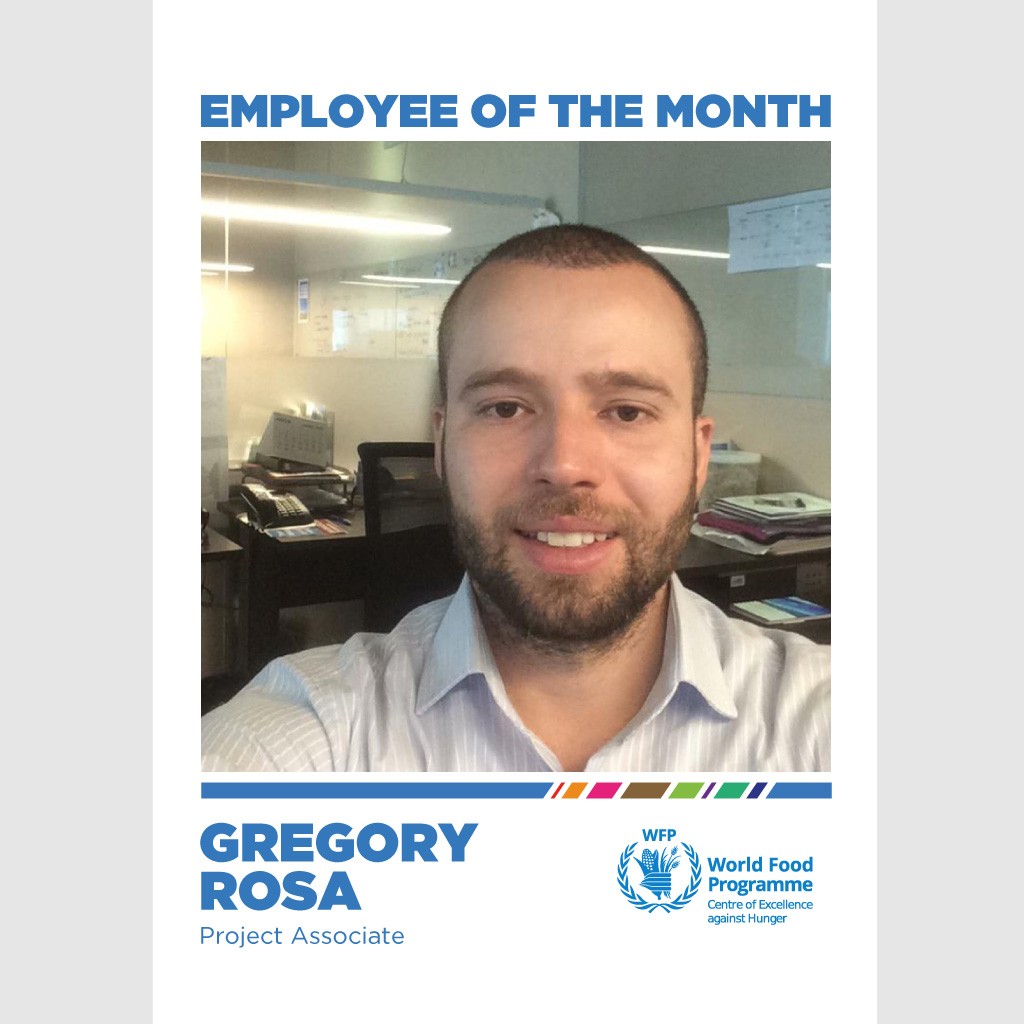
Methodical and appreciative of routines, Gregory Rosa has adapted well to the new working arrangements imposed on several United Nations teams because of the Covid-19 pandemic. “I am disciplined, and the home office set-up is working very well for me,” he said. Despite his young age, Gregory has accumulated experiences in public agencies, embassies and philanthropic entities. Today he works as a Project Associate at the WFP Centre of Excellence against Hunger Brazil.
His career at the Centre began in 2016 as an intern. He was at the last stages of his undergraduate degree on Arts, Literature and Translation Studies at the University of Brasília (UnB) and was finding it hard to continue to work full-time while also studying. He had also finalised his employment contract as a diplomatic assistant at the Nigerian embassy. There, he did a little bit of everything. “I learned a lot about financial operations, implementation of cooperation policies and programmes and how they interact with other countries, the federal government and international organizations,” he says.
The vacancy at the Centre of Excellence was to work on the final stages of a three-year project in partnership with the Bill & Melinda Gates Foundation. And changes came quickly. Four months after being hired as an intern, a Project Assistant position was opened. Gregory applied and was successful.
He recalls that it was one of the most challenging moments of his time at the Centre. “The responsibility was enormous; I was focused on preparing the activities and financial report for a really large project. Fortunately, I was able to count on the support of other people in the office in this task”, he says. He recalls that his previous jobs and international experience (he worked in England for two years and as a social worker) helped him prepare for this challenge.
Another gratifying moment was his participation in the elaboration of the Beyond Cotton Project. “I had the opportunity to learn a lot of what I know today about designing a project, about how to turn an idea into something doable”. As the project grew, a new post of Project Associate was advertised. Gregory once again applied and was successful.
During his undergraduate studies, Gregory did a mandatory internship at the Ministry of Health. There he had his first contact with the topic of nutrition, which ended up being useful for the next stage of work at the Centre. At the end of 2019, the Centre launched a project that aims to combat the double burden of malnutrition in partnership with the Brazilian Ministry of Health. “It is a new project that will open many doors for the Centre, mainly because Brazil is at the forefront of the United Nations Decade of Action on Nutrition, which runs until 2025”, he explains.
Continuous learning
Gregory confesses that he had a little bit of prejudice about the work of the United Nations before starting to work at the Centre. But today, after four years, he sees things differently. “I think most of the prejudice against UN agencies come from a lack of knowledge. Furthermore, due to the nature of our work, the results are not always seen immediately. The impact of our work will often be known in the medium and long terms”, he says.
Another element that he finds rewarding about working at international organisations is the abundance of learning opportunities. “Because WFP works with many countries and cultures, I learn a lot and develop new skills daily. And I imagine that people involved in the projects feel the same way. Here we can take ownership of decisions and activities largely because the WFP is an inclusive and open agency in the development of projects. The success of international cooperation in this increasingly interdependent and virtual world requires the ability to navigate cultural differences and this is fascinating”, he says.





